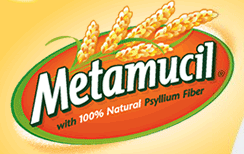
Metamucil is a laxative and fiber supplement that is primarily composed of psyllium seed husks. Metamucil was first marketed and produced in the 1930’s, but since then, it has been bought and owned by Procter & Gamble.
Psyllium
Psyllium seed is a natural rich source of fiber, and the husks have a high concentration of edible fiber that the body needs in order to aid in vitamin absorption, form bowels regularly, and regulate digestion. Without fiber, the human body could find it difficult to absorb essential vitamins from the food that it consumes; and the body could accumulate harmful toxins that would otherwise have left the body through the bowels.
What It Does
Metamucil is marketed as a way for people to still get their daily dose of fiber,
which is convenient for those who are always on the run and are not able to consume fresh fruits and vegetables. Metamucil is used as a fiber supplement in order to help the body absorb excess water and let go of harmful wastes. Furthermore, because fiber intake is linked to a decreased risk for heart disease, Metamucil is also marketed as a way to lower cholesterol following daily intake.
Because Metamucil contains a good amount of fiber, it can bulk up the body and give the body the feeling of being full. It can therefore act as an appetite suppressant, and prevent overeating. Metamucil can also be used as a laxative to induce bowel movement, which can further decrease body weight by ridding the body of excess bowels that could be clogging the intestinal tract.
Metamucil for Weight Loss
Metamucil has also been recently touted by health buffs and fitness enthusiasts as a way to lose weight. According to those who have used Metamucil, drinking it several times a day can rid the body of cravings and can induce regular bowel movement. However, doctors warn that Metamucil should not be used as a weight loss supplement, and should not be consumed for longer than two weeks. This is because an excess of fiber in the body can also cause water retention, and can therefore translate to weight gain.
Side Effects
Metamucil can also decrease the absorption of minerals by increasing the frequency of bowel movement. That is, instead of retaining food in the body in order to absorb nutrients, food is immediately pushed out as solid waste. This can cause dehydration as well as malnutrition, since intestinal flora are unable to act on food and help the body absorb essential vitamins. With continued use, Metamucil can also force the body to be dependent on it for bowel movements. Long term use of Metamucil can also damage the nerves, tissues, and muscles of the lower digestive tract.
Reviews
Reviews of Metamucil as a weight loss supplement have likewise been mixed. Some reviewers claim that it is effective, but they also needed to eat more nutritious food in order to meet their daily required dosage of vitamins and fiber. Other reviewers felt that constantly taking Metamucil was not sustainable in the long term, and others reported feeling constant headaches and being dehydrated. Other reviewers also reported that they gained weight following long term use of Metamucil.
Bottom line… If you want to lose weight look elsewhere.
